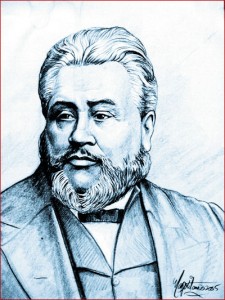 Phil Johnson of spurgeon.org writes:
Phil Johnson of spurgeon.org writes:
It is well known that Charles Spurgeon came to Christ when he ducked into a small church to escape a snowstorm and heard the gospel proclaimed. Some wrongly think Spurgeon was thus suddenly converted to Christ out of a life of sheer paganism. Spurgeon himself used to talk about how he had suffered for a long time under the weight of sin before he finally found Christ. Because of the way he described himself as a great sinner utterly in debt to divine grace, many who heard him preach came away with the impression that he was a man who had gone deeply into sin and come to Christ fairly late in life.
But the facts are that Charles Spurgeon was converted to Christ while still in his youth, and he was the product of godly upbringing in a pastor’s home. Spurgeon’s two main role models, his father and his grandfather, both were godly pastors.
Spurgeon was raised in his grandfather’s home from his infancy until he was nearly six years old. Something, possibly economic difficulties, made it necessary for Charles to live with his paternal grandparents, in a village near the one where his parents lived, from the time he was nearly two years old until he was ready to start elementary school. Charles Spurgeon was his grandfather’s constant companion, both in the pastor’s study and when the elder Spurgeon made pastoral visits. Young Charles loved his grandfather’s books. He was a prodigy when it came to reading, and he developed a love for books very early. He especially loved Pilgrim’s Progress.
By the time Spurgeon returned to his parents’ home at age six, he already had three younger siblings, two sisters and a brother. He seemed already to feel very deeply his responsibility as the elder brother to influence them for good. That perspective, which was surely part of his grandfather’s pastoral legacy, made him mature beyond his years. And this was a persistent trait of Charles Spurgeon’s. As a young boy, even before he was a teenager, his hobbies were writing poetry and editing a magazine. Even then he was honing the literary skills that would make him legendary both as a preacher and an author.
Continue reading

 From David Murray
From David Murray